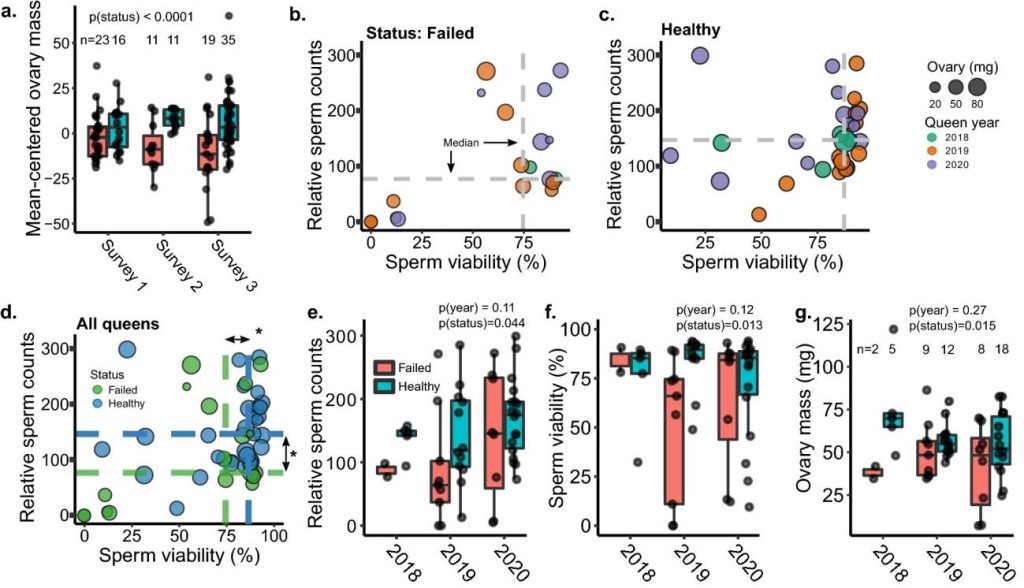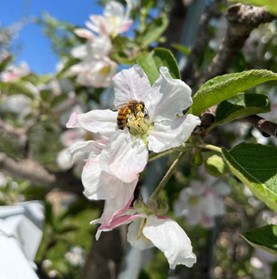Sick queen bees have shriveled ovaries, putting their colonies at risk
by University of British Columbia
 Queen bees with viral infections have smaller ovaries than their healthy counterparts, a recent UBC study has found, which could threaten the health and financial viability of their colonies.
Queen bees with viral infections have smaller ovaries than their healthy counterparts, a recent UBC study has found, which could threaten the health and financial viability of their colonies.
Viral infections in honey bees are becoming more intense and widespread. UBC researchers Abigail Chapman and Dr. Alison McAfee found that virus-infected queen bees in the field have shriveled ovaries compared with healthy ones. The researchers then infected queen bees in the lab with a different virus, and noticed the same result.
A queen’s shrunken ovaries could mean fewer eggs, and so, fewer baby bees—something the researchers will investigate in future work. A smaller population would make a colony weak, affecting how much money beekeepers can make from it. Honey bees contribute an estimated $4 to $5.5 billion annually to the Canadian economy.
The researchers are in the very early stages of working on a “queen vaccine” to protect the bees. In the meantime, beekeepers are practicing COVID-style measures to prevent virus spread, including quarantining sick colonies and sterilizing equipment. Local governments could help by subsidizing PCR tests to help beekeepers identify which colonies are sick, says Chapman.
The research was published in Scientific Reports.
We are here to share current happenings in the bee industry. Bee Culture gathers and shares articles published by outside sources. For more information about this specific article, please visit the original publish source: Sick queen bees have shriveled ovaries, putting their colonies at risk (phys.org)








